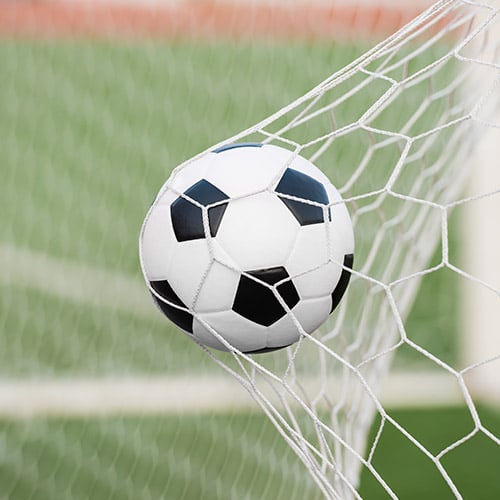Last week, we talked about what it takes to win a final. But unfortunately, for one team to win a final, the other must lose.
So, we thought we’d follow up with some tips to explain what to do if you find yourself in that situation, including some tips for coaches to support their athletes in a loss.
Let your emotions out
It is important that you deal with and accept the situation instead of avoiding it. Therefore, letting those emotions out, talking to others and reflecting on why you feel the way you do is an important part of the process.
Use the team around you
As we say to all of our athletes: build a team around you – whether that’s your teammates, coaches, friends, family, professionals etc. It is important for you to have people in your corner, to talk to and share your worries or problems with. Talking to people you trust and who support you can help you get through the disappointment of a bad game. As trained professionals, we believe that sport psychologists can be an important part of this support network, too.
Asking for help can also help you develop your resilience and deal with this setback better. It helps athletes to bounce back from failures by:
- Enhancing their effort
- Helping them deal with stressful situations
- Providing motivation
Learn from your mistakes
Mistakes, if used correctly, can be an opportunity to learn and improve. Obviously, you don’t want to be failing all the time, but when you do, you need to be able to “fail better.”
Mistakes can also boost an athlete’s motivation levels and encourage them to make improvements, so that when they encounter a similar problem again, they know exactly how to solve it. Reflect on the final and think about how you can learn from the mistakes made.
Another way to learn from your mistakes is to ask for feedback. Which leads onto our next point…
Ask for feedback
Setbacks are inevitable at some point in your career. However, you can avoid making the same mistakes again by using quality feedback.
Athletes should ensure they are open to feedback and actually taking action after they receive it. It is not enough to have good intentions; behaviour change and results come from doing, not just thinking about it.
A tip for coaches giving feedback: when done right, it can be one of the most effective ways to learn – done wrong, it can hinder learning hugely. There are many ways to give better feedback.
One of our favourites? Try to view it as feedforward instead, by putting an emphasis on what do next and how to get better, offering suggestions on strategies and pointing out behaviours that you want to see again. A great way to start this conversation is by asking the team for their opinions on what should be done differently.
Reduce your fear of failure
Often, it’s not the failure itself that athletes fear. It’s the perceived negative consequences of that failure that stresses them out. Psychologists have identified two strategies to help reduce the fear of failure:
- Embrace the uncertainty – Sometimes, as an athlete, you think that a win means that everything is good, and a defeat means that it’s all doom and gloom. That can lead to stress, anxiety and “safer” play, when in fact, sport can be very unpredictable. You and your team should judge yourself on your attitude and effort as these are the behaviours that you want to see again.
- Question fears – Following bad matches, teams can start to think emotionally, meaning they’ll tend to think about worst-case scenarios as well as catastrophising small setbacks. A nice way to challenge this with your team is to ask whether what they are thinking is fact or feeling. This will help people to start thinking more rationally.
Foster resilience
When interviewed, many Olympic athletes say that resilience is a key factor in their path to success. Good ways to become more resilient include taking responsibility or viewing decisions as active choices, as well as having an overarching focus on learning and development. Here are 9 ways that Olympic champions develop their resilience.
A recent study suggested that young athletes should not be shielded from facing adversity. Instead, these experiences can help them to develop personally. However, coaches need to be able to find a balance and not use too much “tough love”, as this can weaken the athlete’s mentality.
Turn failure into success
Mistakes are necessary if you want to learn and get better. Shifting your focus towards mastering skills instead of just focusing on the outcome is important. As we said in the previous blog about how to win a final, you should be focusing on the process rather than the outcome. If you do this, you can therefore still pick out positive playing points even when you haven’t won the match.
Coaches should encourage this and praise their team for developing and improving to help them to get right back to work when things don’t go their way. The role of a coach is important for athletes of all ages and levels. For example, a recent study found that children are very good at judging how adults around them (parents or coaches) perceive failure, which can influence their whole sports career. You need to understand and show that mistakes are important learning opportunities to inspire athletes.
Final thoughts
Losing a game when you’ve worked so hard and made it so far isn’t easy. But with these tips, you can move forward and become an even better athlete. Remember, mistakes are necessary to learn! Move on and keep working hard and before you know it, you’ll get that win again.





